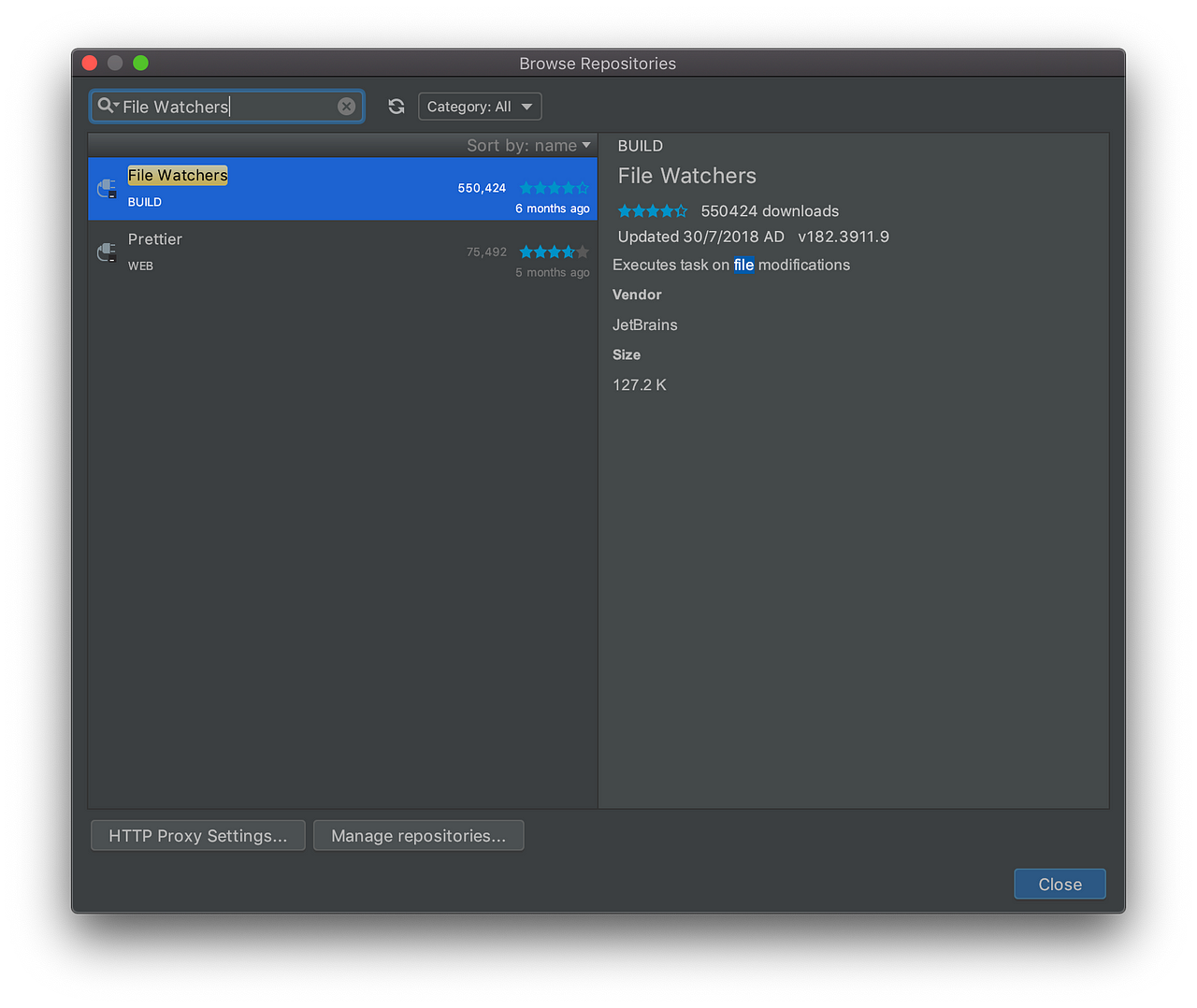
#JAVA FILEWATCHER WATCH FOR FILE TYPE CODE#
This method’s usage is shown in the following code snippet. If no queued key is available, this method waits. The watch service’s take() method returns a queued key. When an event occurs, the watch key is signaled and placed into the watch service’s queue. This is implemented as an infinite loop that waits for incoming events. Note the directory being watched is an existing directory.
#JAVA FILEWATCHER WATCH FOR FILE TYPE REGISTRATION#
This is a token representing the registration of a Path object with a watch service. WatchKey watchKey = path.register(watchService, StandardWatchEventKinds.ENTRY_MODIFY, StandardWatchEventKinds.ENTRY_DELETE) Ī WatchKey instance is returned for each directory registered. Specify the type of events to monitor – in this case file modify and delete. The Path extends the Watchable, so the directory to be monitored is registered as a Path object. Any object that implements the Watchable interface can be registered. Register one or more objects with the watch service. Create a new watch service for the file system WatchService watchService = FileSystems.getDefault().newWatchService() The program is explained in the following steps: 2.1. The kind of events monitored are modify and delete that the directory is modified (like adding a file to the directory) or a file is deleted from the directory. The example application watches a directory for changes by using watch service. This example shows how the watch events are used in a watch service application. The events are of type WatchEvent.Kind, except OVERFLOW which is of type WatchEvent.Kind. The overflow is a special event for lost or discarded events. These identify the type of operation on a directory – an entry is created, deleted or modified in the directory. The StandardWatchEventKinds class has four fields (constants) that identify the event kinds: ENTRY_CREATE, ENTRY_DELETE, ENTRY_MODIFY and OVERFLOW. The StandardWatchEventKinds class defines the standard event kinds. The kind() method returns the event kind (an identifier), defined by WatchEvent.Kind interface.

IntroductionĪ watch event is classified by its kind. Xxxxxxxxxx public class FileWatcher implements Runnable I am wondering of this whole code is a currect way of doing this. I even put the excecution time in Nanoseconds but it didn't help. This code only detects the event for the first file and not the rest. However, if I drag and drop, or add several files at the same time. This whole thing works perfect as long as modifications of files(in my case mostly adding) is done 1 by 1 with a small delay within each addition. Public class FolderWatcherHandler extends void eventDetected(Event event) Threadpool.scheduleWithFixedDelay(r, 0, 1, TimeUnit.NANOSECONDS) Runtime.getRuntime().addShutdownHook(new void run() LOG.error("failed to watch the update", e) Threadpool = Executors.newSingleThreadScheduledExecutor() įinal FolderWatcherHandler handler = new FolderWatcherHandler() Public AbstractWatcher(ScheduledExecutorService threadpool) Private final ScheduledExecutorService threadpool Return WatchEvent castEvent(WatchEvent event)Ībstract void eventDetected(Event event)

String fileName = _directotyToWatch.resolve(ntext()).toString() LOG.info(event.kind().name().toString() + " " + _directotyToWatch.resolve(ntext())) WatchEvent watchEvent = castEvent(event) WatchKey watchKey = _directotyToWatch.register(watcherSvc, ENTRY_CREATE, ENTRY_DELETE, ENTRY_MODIFY) įor (WatchEvent event : watchKey.pollEvents()) WatchService watcherSvc = FileSystems.getDefault().newWatchService() Path _directotyToWatch = Paths.get("data/input-files") // this will be put in the configuration file Public static Event call() throws IOException, InterruptedException I have the below code for monitoring a folder for any changes in java:


 0 kommentar(er)
0 kommentar(er)
